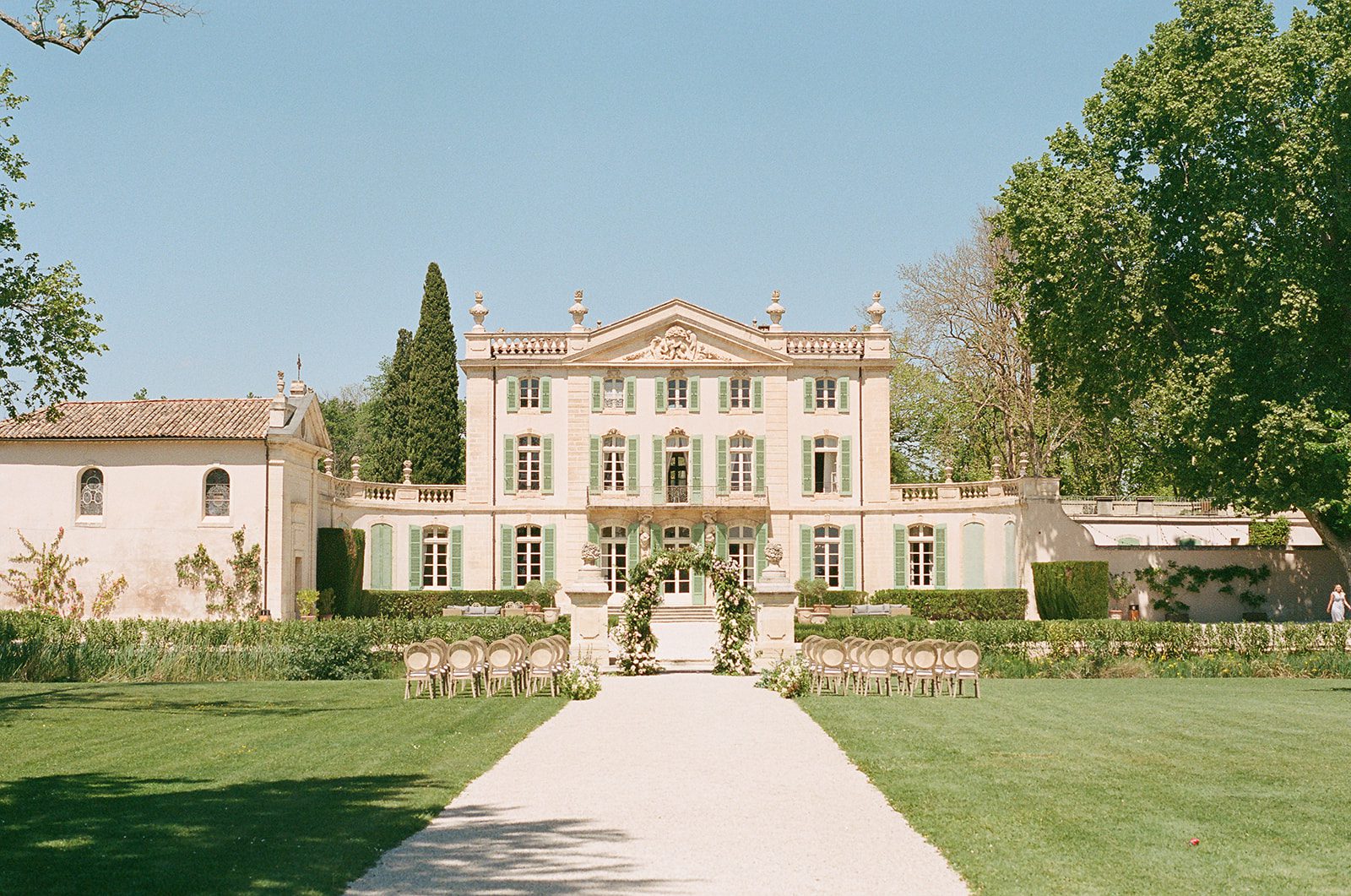Capturing the magic of a wedding day is an art no matter if it is documented on film or digitally on modern mirrorless cameras. The choice between film and digital photography has ignited a persistent debate within the industry for good reason. Some photographers swear by the use of film, arguing that the quality and artistry of the images are beyond comparison. On the other hand, die-hard tech enthusiasts cannot get enough of the modern technology embedded in mirrorless cameras.
Let’s explore these differences and discover if incorporating film photography into your wedding collection is the right choice and, if so, which type!
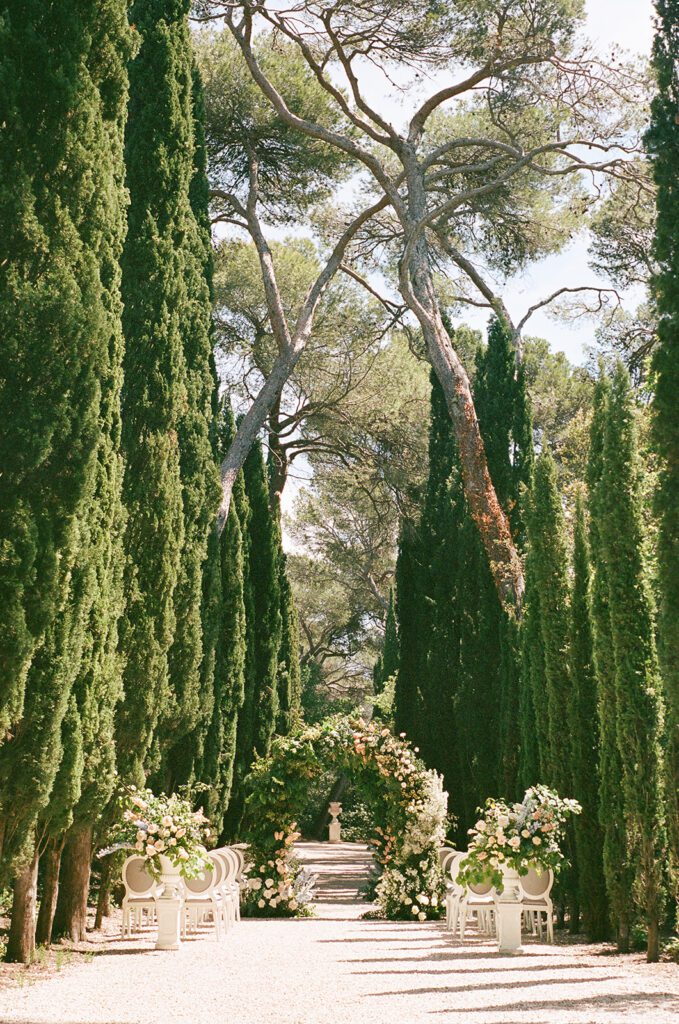
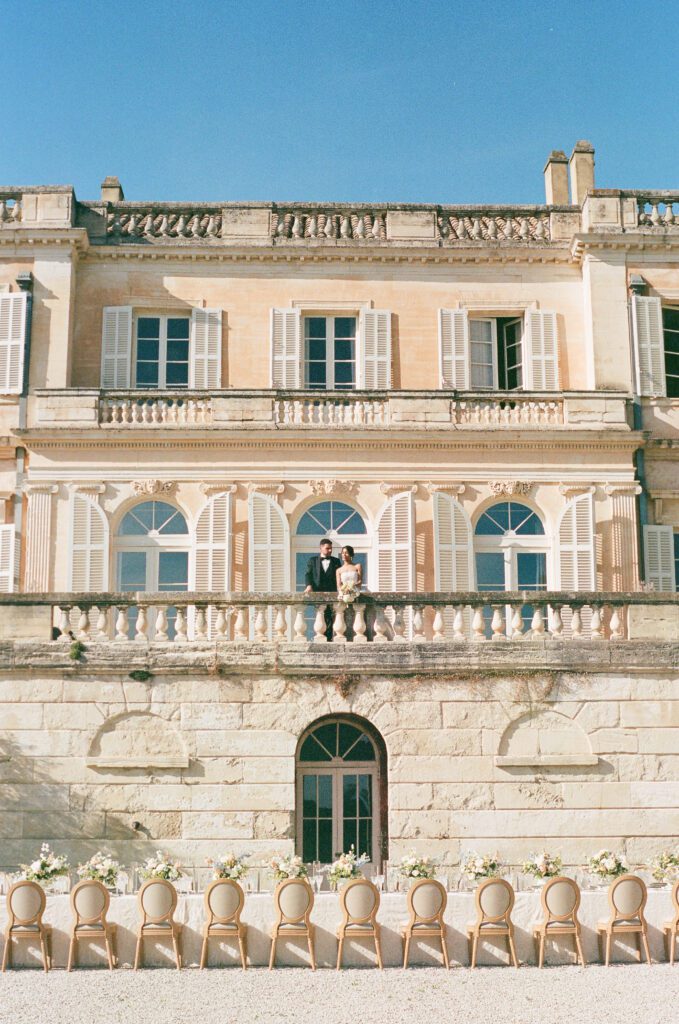
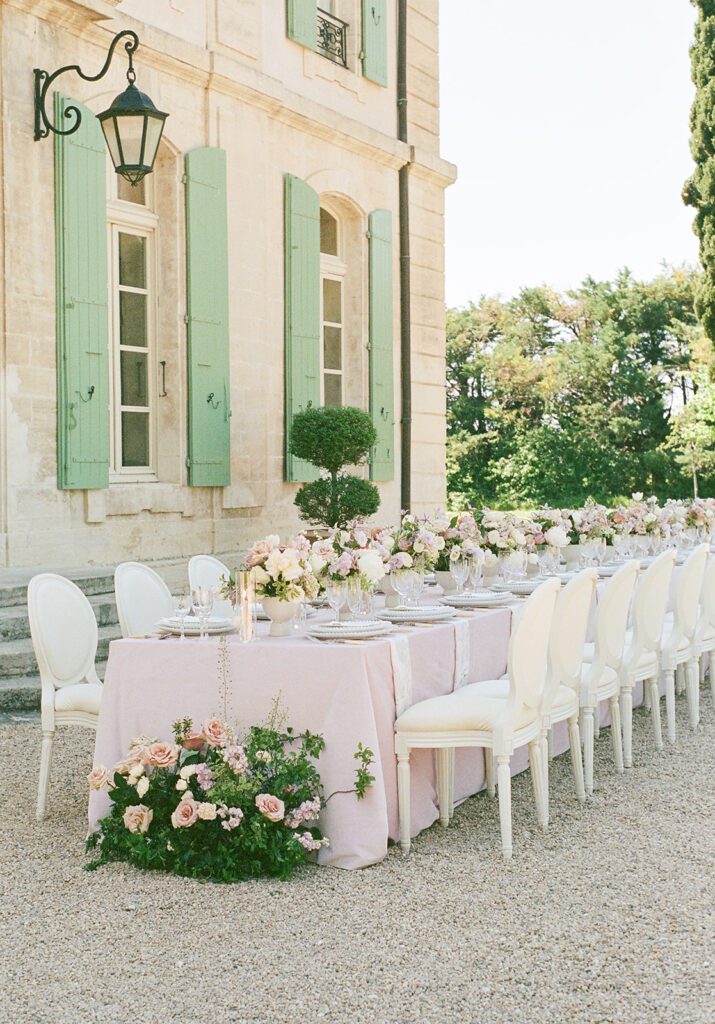
What is Film Wedding Photography?
Remember flipping through your parents’ or grandparents’ photo albums, feeling nostalgic from those grainy, perfectly imperfect photos? Most likely, those images were captured on film. Now, imagine infusing that timeless sentiment into your wedding day. Picture future generations leafing through your film photos, their faces lighting up with adoration at cherished memories. It’s a gift, an heirloom transcending generations.
Now from a technical perspective, film photography involves placing a roll of light-sensitive film in the camera. When the shutter opens, the film captures a unique impression seen through the viewfinder. After each exposure, the film advances, ready for the next captivating moment. Once a roll is finished, it’s rewound and removed for development.
While some photographers develop their own film, most wedding photographers prefer sending theirs to specialized labs like Richard Photos Labs or local labs through hand delivery. In the Denver area, my trusted spots for film development are Englewood Camera or Not Another Film Lab, ensuring the best results for your precious captures.
The evolution of film into today’s wedding celebrations introduces distinctive characteristics—classic vintage grain, nuanced color reproduction, and an overall aesthetic appeal that many digital photographers strive to replicate in their own work.
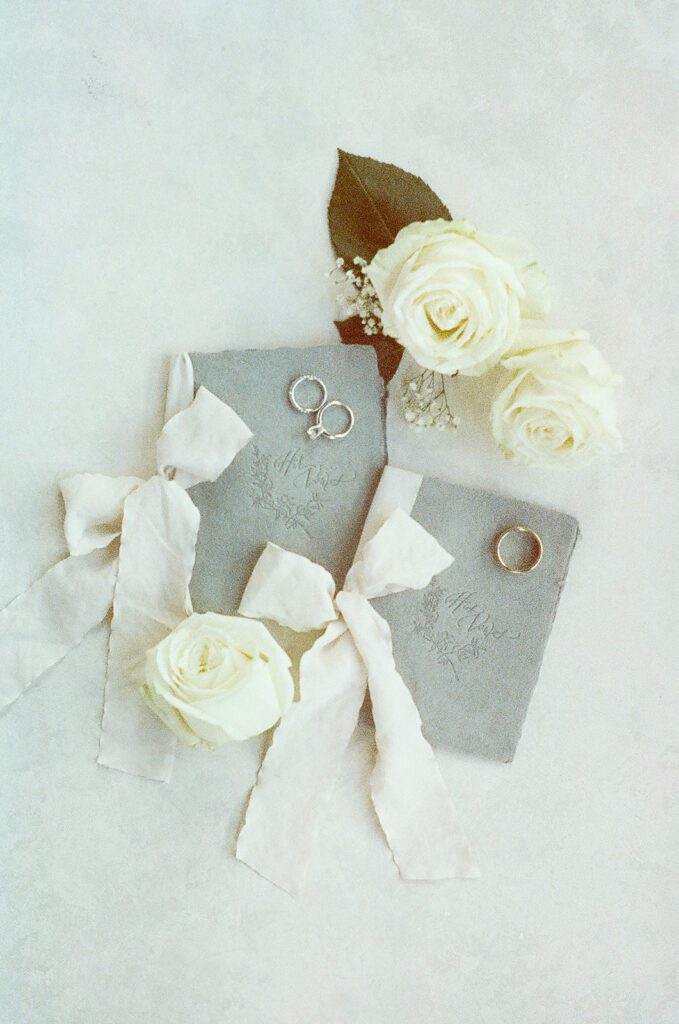
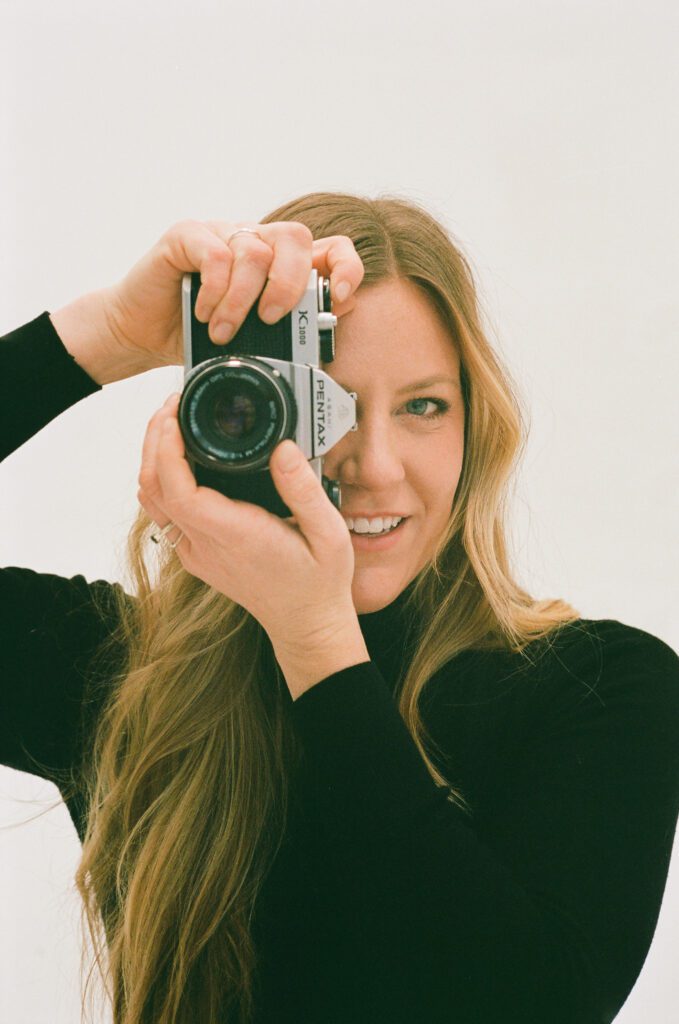
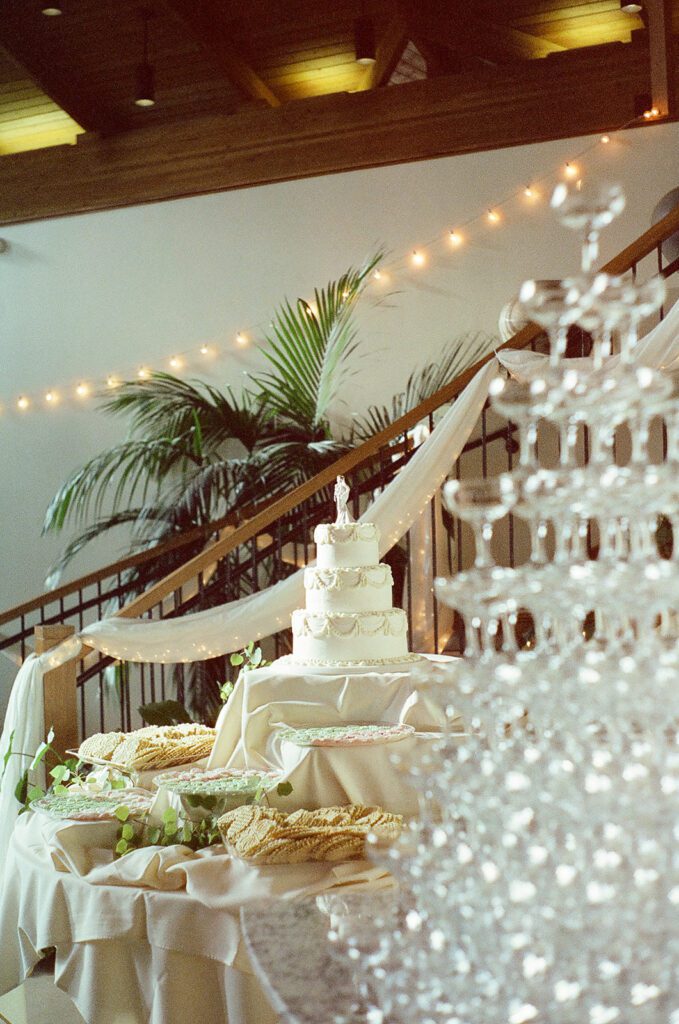
35mm vs. 120mm (Medium Format) film
Ready to dive into the intricacies of film photography to understand what us film photographers are talking about? While you might be familiar with wind-up disposable cameras and Polaroids, wedding photographers, especially for formal images, favor 35mm and 120mm films. These numbers represent the film size, with 120mm being larger and 35mm smaller, impacting the resolution of the image, similar to the pixels in a digital image.
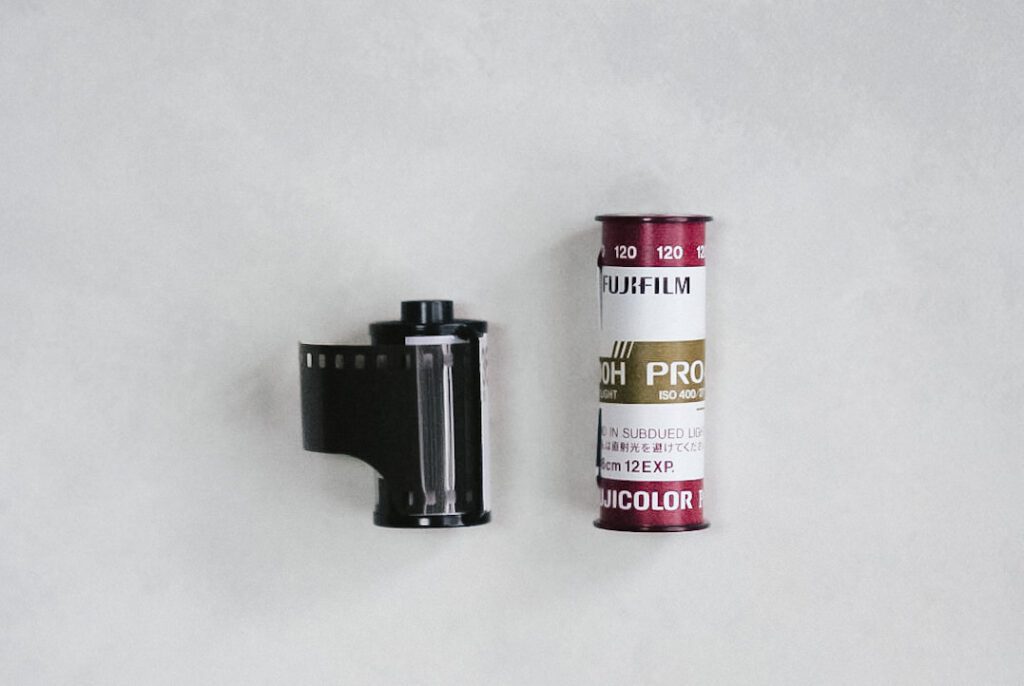
Comparing 35mm and 120mm film
35mm film
- Average of 36 exposures per roll
- Grainy (you get to decide if you love of hate that vibe)
- Smaller film, less details captured in the image
- Many 35mm cameras are portable and easy to carry around
- Ideal for more candid moments of a wedding day and the reception
- More cost effective
35 mm Examples using the Contax G2
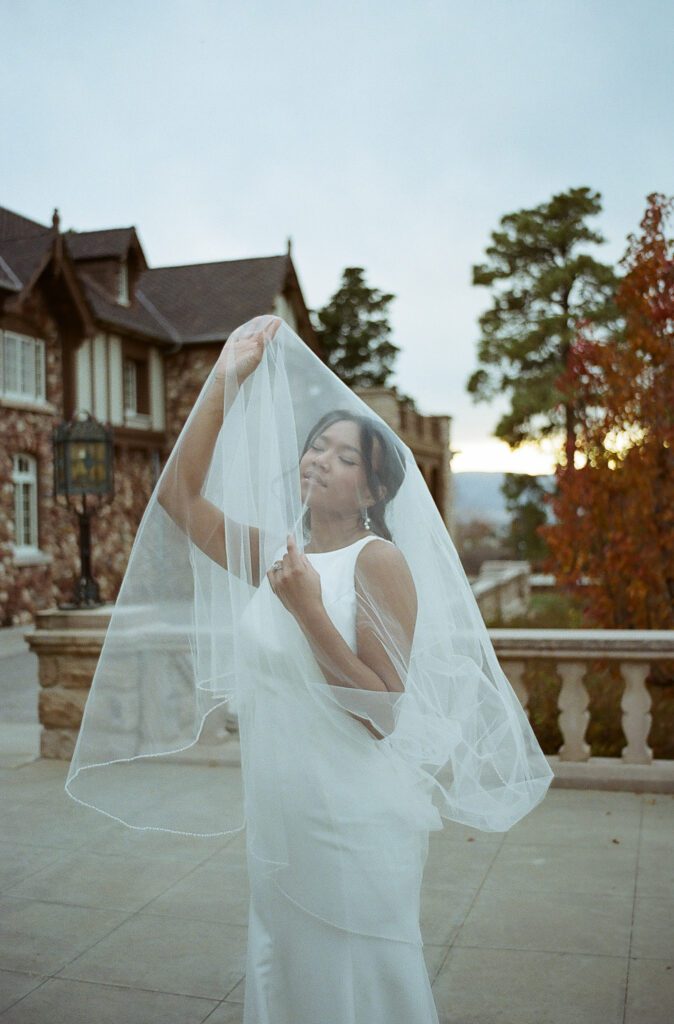
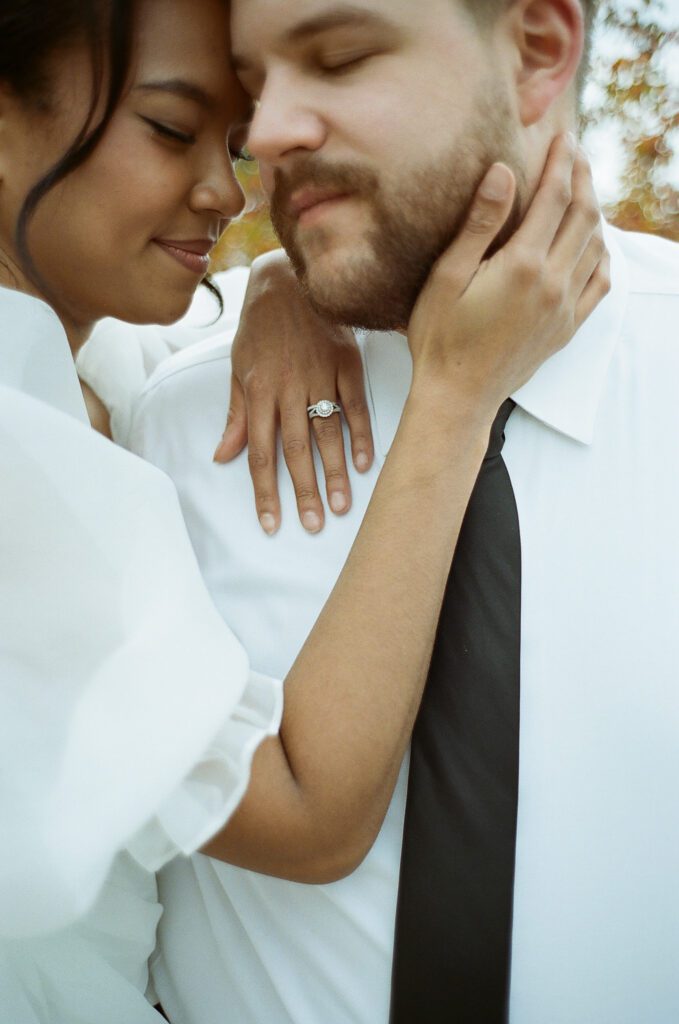
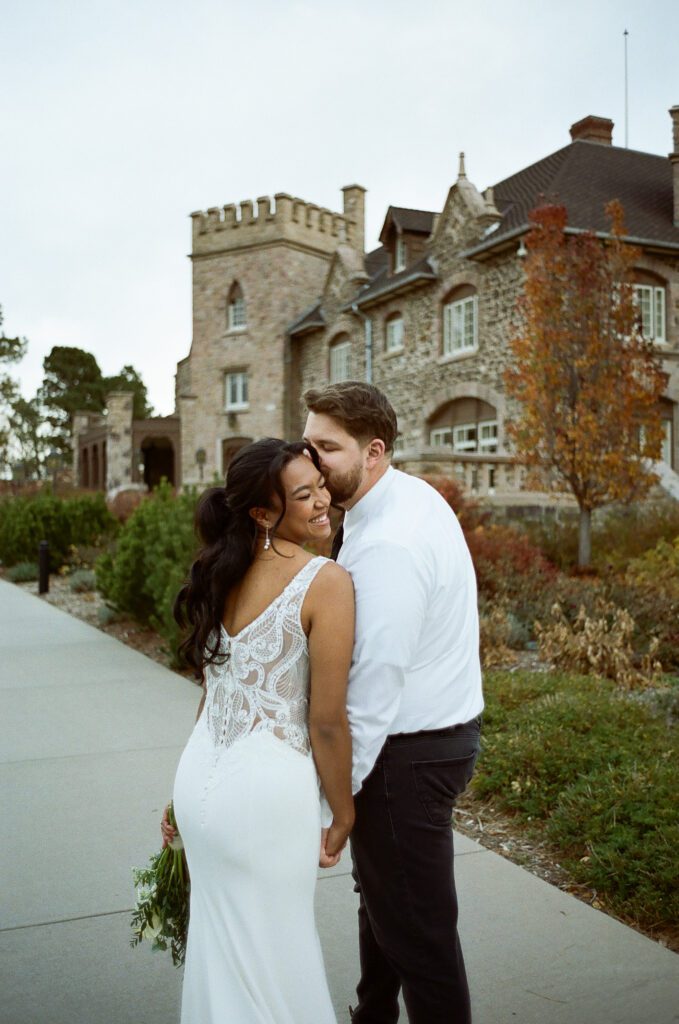
120mm film
- Average of 12-16 exposures per roll depending on specific camera
- Less grain compared to 35mm film
- Larger film, enhanced details captured and higher resolution image
- Many medium format cameras are heavy and bulky weighing upwards of 5 pounds!
- Ideal for portraits and detail images
- Depending of the wedding day and amount of film being shot, it may require an assistant to help change film quickly
Medium Format Examples using the Contax 645
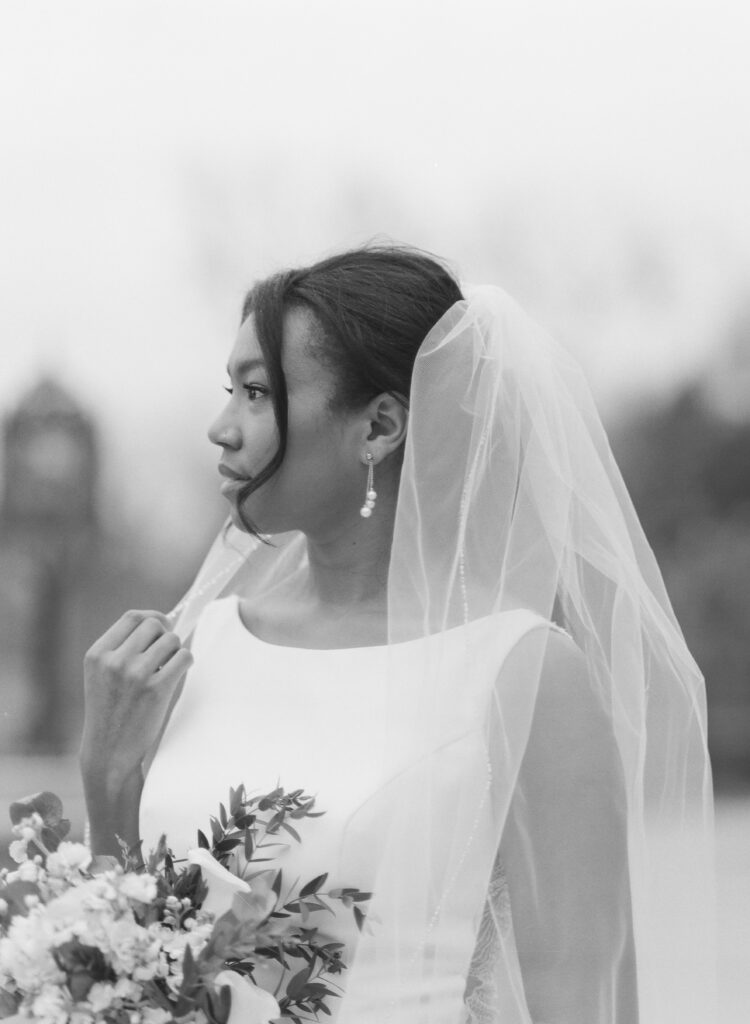
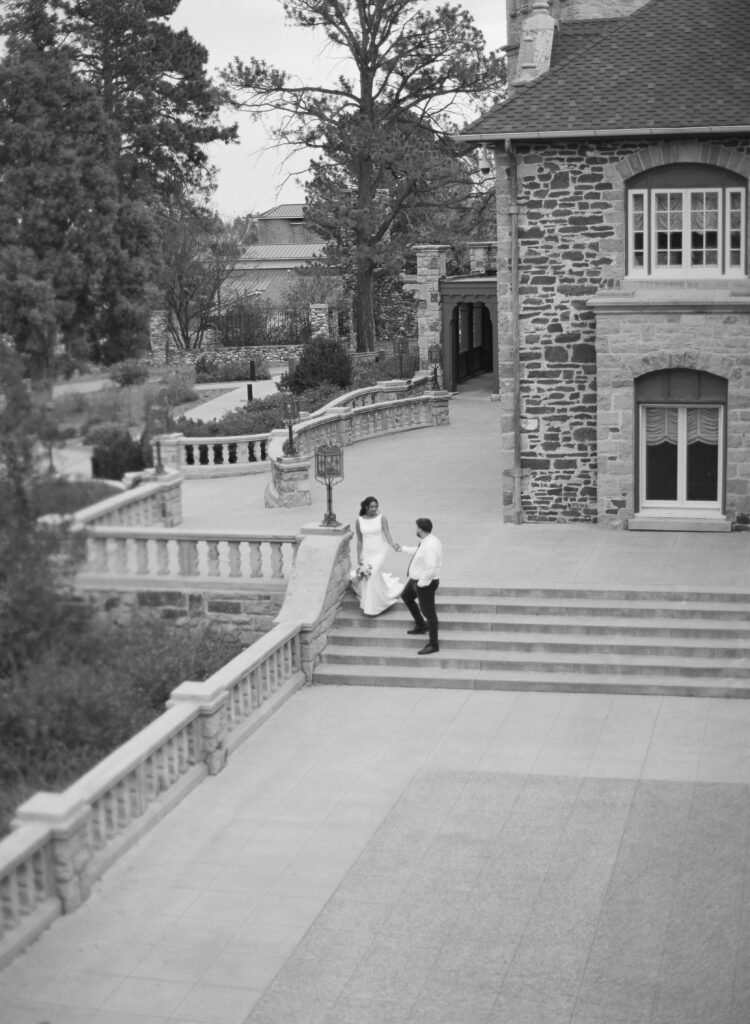
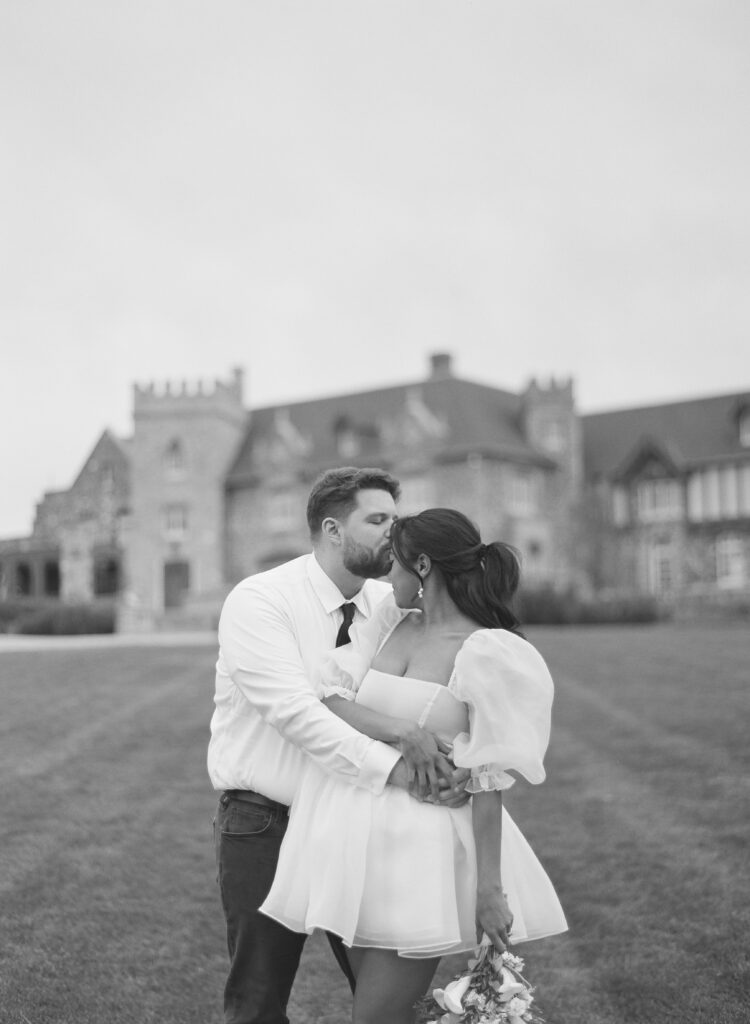
Why Include Film in Your Wedding Day?
Film photography brings an intentional touch to each shot, beyond its artistic and heirloom value. I meticulously plan the photos I want on film, deliberately slowing down on the wedding day. This ensures every shot is taken with care, focusing on composition, lighting, and artistic elements. Shooting film provides a slower pace, allowing intentional moments with your partner. Unlike digital, film photographers avoid wasting frames, opting for a more deliberate and mindful approach.
After your wedding, you’ll have timeless imagery that authentically captures beautiful moments, evoking memories on each page.
Having explored both digital and film, I find a hybrid approach on the wedding day offers the best of both worlds.
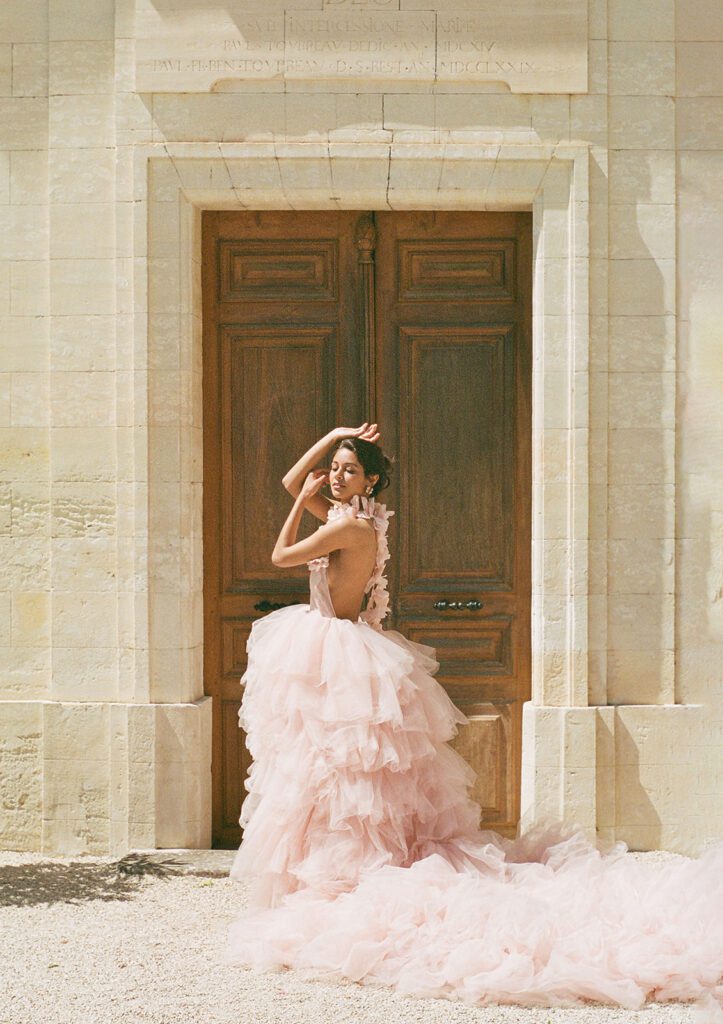
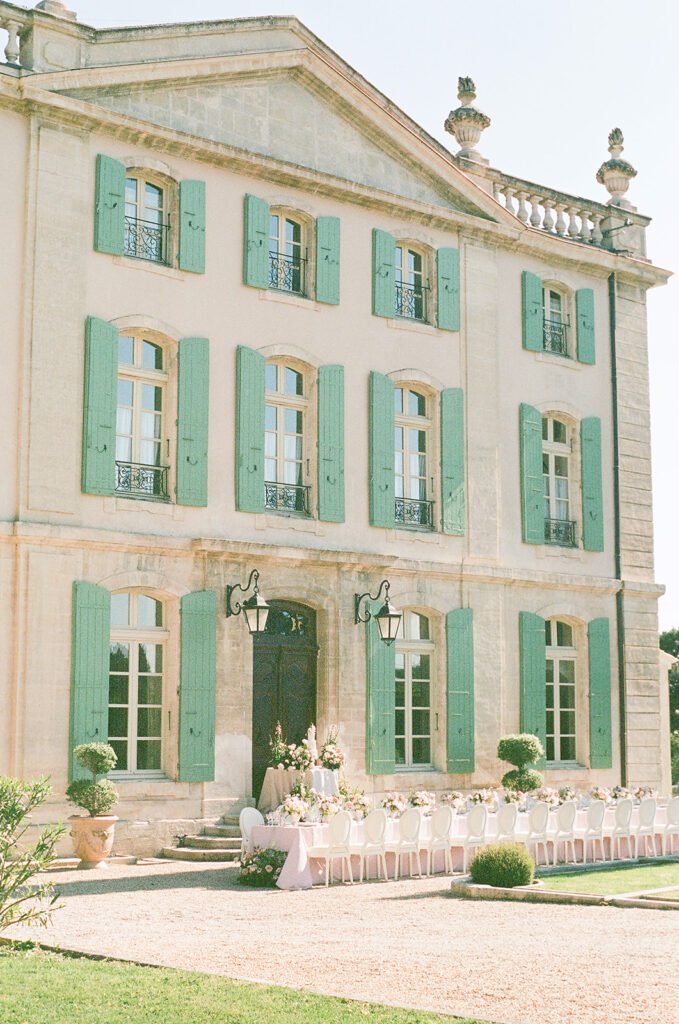
Cost Considerations
Film photography is an investment compared to digital works. For perspective, a digital photographer invests in cameras, memory cards, and digital software, with no additional cost for taking extra frames. In contrast, every click of the shutter in film photography incurs a cost. You need a specific and often expensive film camera, considering the scarcity of film camera production. Additionally, film is becoming scarcer, elevating its cost. After using film, you must ship it to a lab and pay for development, contributing to the overall cost.
While film may be pricier than digital, I believe it’s worth the investment on your wedding day. Some of my favorite photos and those cherished by clients are captured on film, evoking a unique artistic allure.
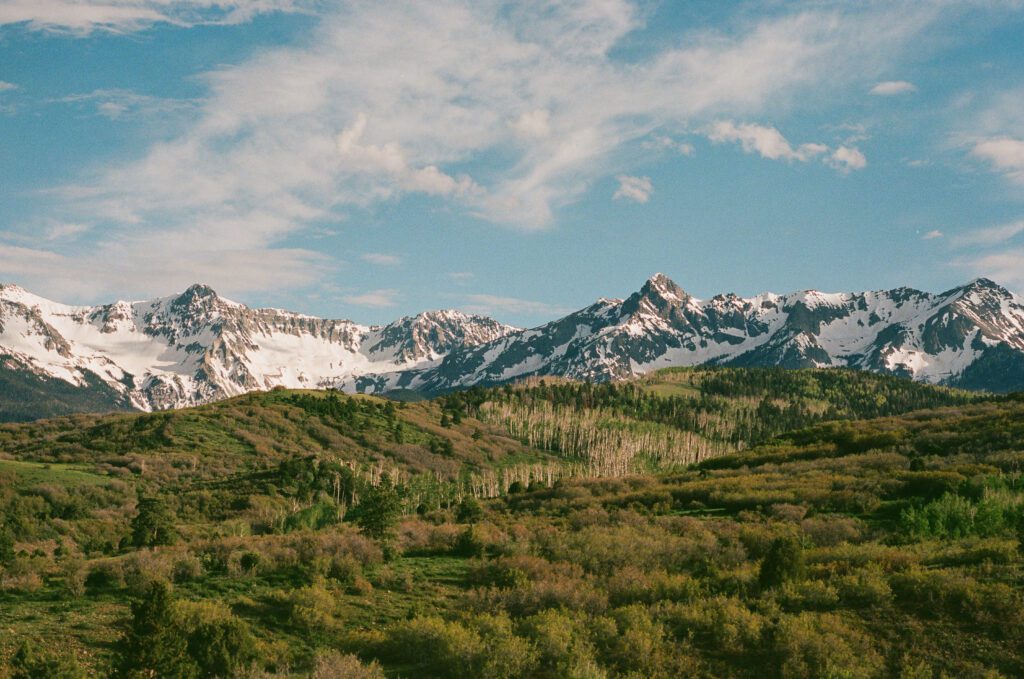
Digital vs. Film: Which is Better?
Digital Photography
Pros
- Advance technology resulting in sharp and fast autofocus
- Images can be edited to a variety of different styles
- Cost Effective
- Instant results
- Can shoot in almost all lighting conditions
- Photographer take a ton of frames to ensure the “perfect” shot
Cons
- Images can appear sharp and more harsh on skin texture
- Less focus on achieving perfect compassion and lighting while shooting
- Less artistic feel
Film Photography
Pros
- Timeless Aesthetic (many digital photographers try to recreate the look of film)
- Artistic Appeal
- Softer images that are flattering on skin textures
- Heirloom quality fine art
- Naturally creates intentionality while taking photos
Cons
- Higher Cost
- Limited shots
- Processing Time
Ultimately, the choice between film and digital photography depends on your personal preferences, budget, and the specific aesthetic you wish to achieve. Some photographers like myself prefer a hybrid approach, combining the strengths and balancing out the weaknesses of both mediums.

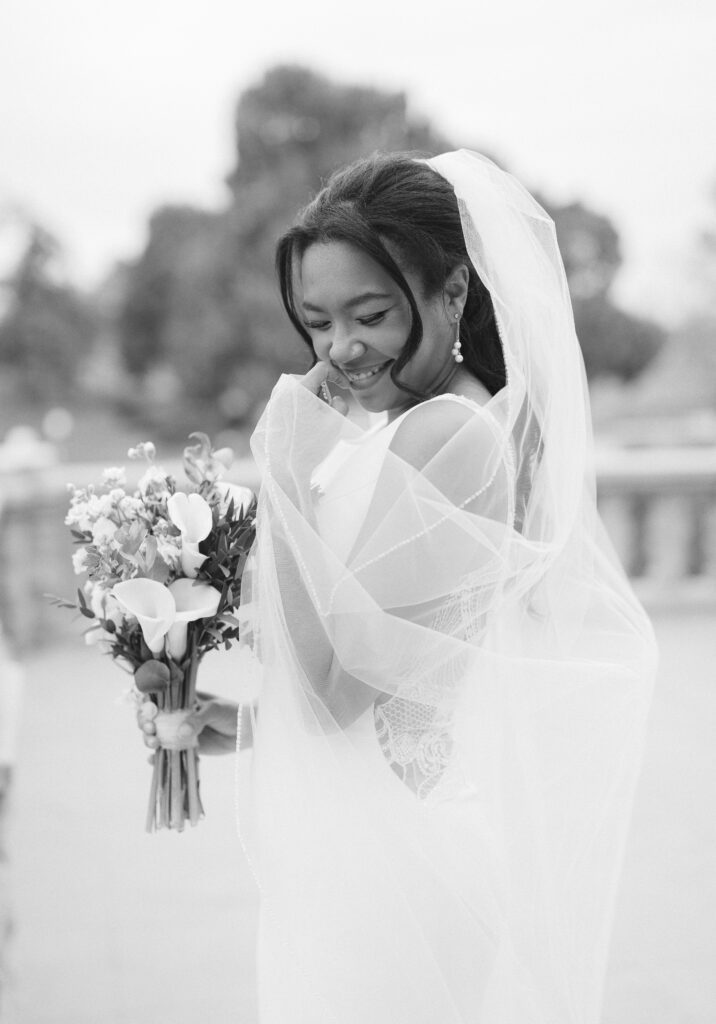
The Bottom Line
In the debate between film and digital, the magic lies in the combination of both. A hybrid approach encapsulates the best of both worlds, delivering a wedding album that is not only comprehensive but also artistically rich. As you embark on your wedding photography journey, consider the unique qualities you desire in your album, and let the intertwining of film and digital create a visual magic on your special day.
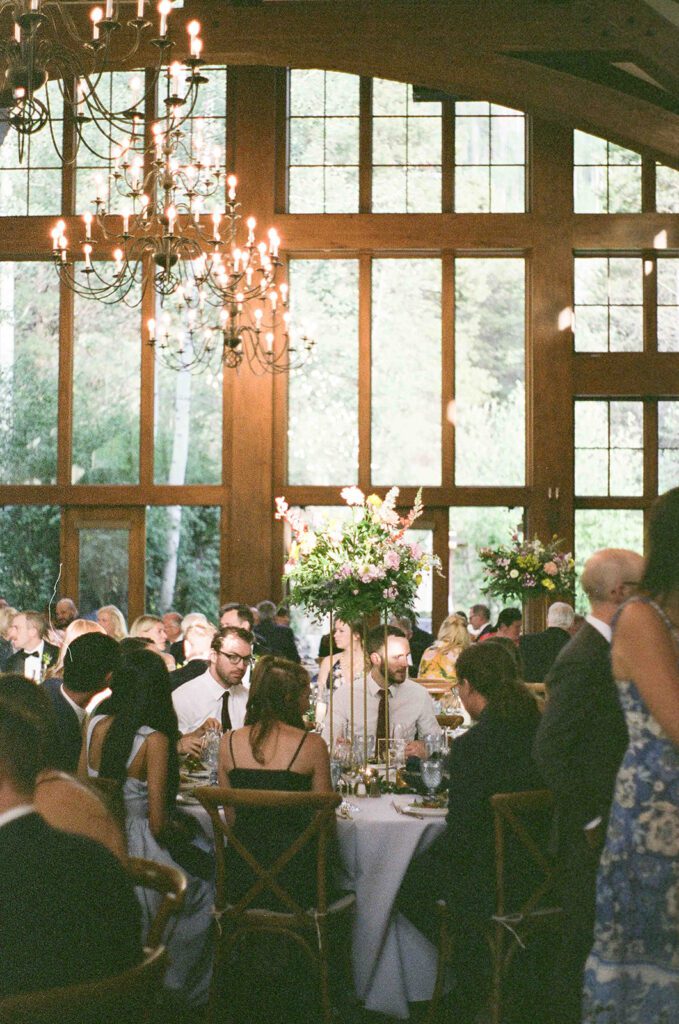
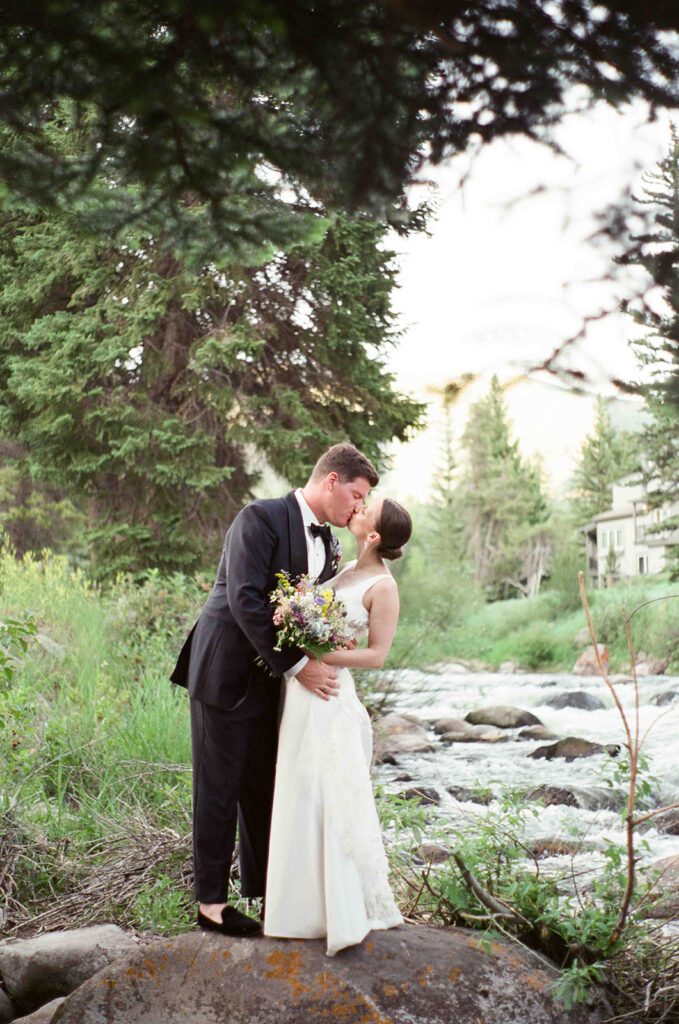
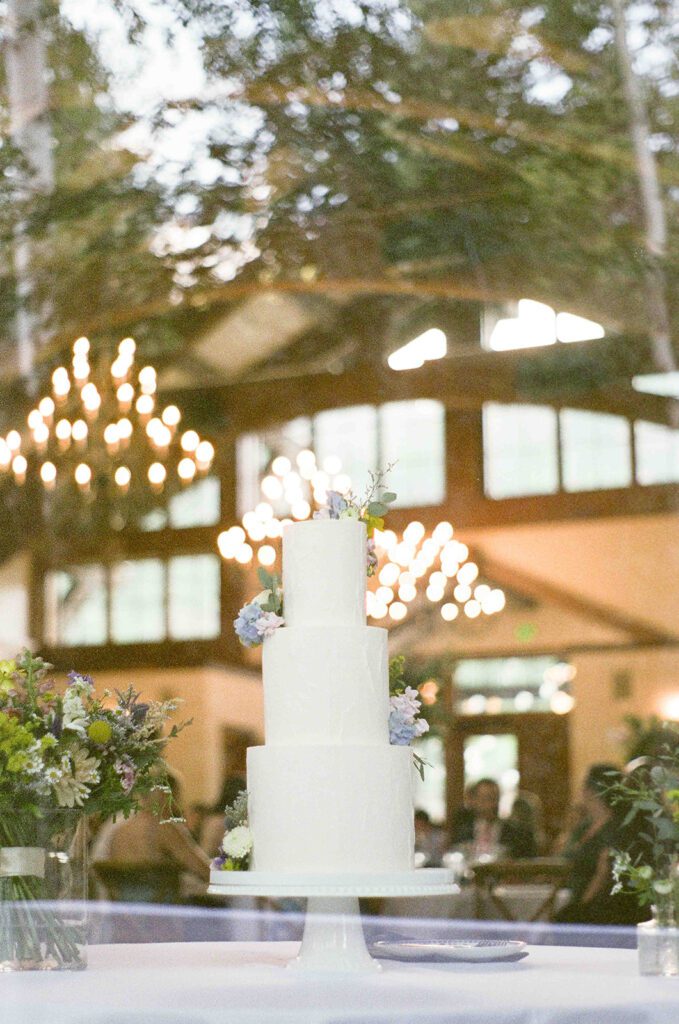
Leah Black | Film Wedding Photography | Destination Wedding Photographer
What are your thoughts on film vs. digital in wedding photography? Share your insights in the comments or connect with us on social media. If you’re intrigued by the idea of adding film to your wedding photography experience, reach out with any questions or to explore our services. Your love story deserves to be captured in the most exquisite way possible – let’s make it happen by going to my contact page!

